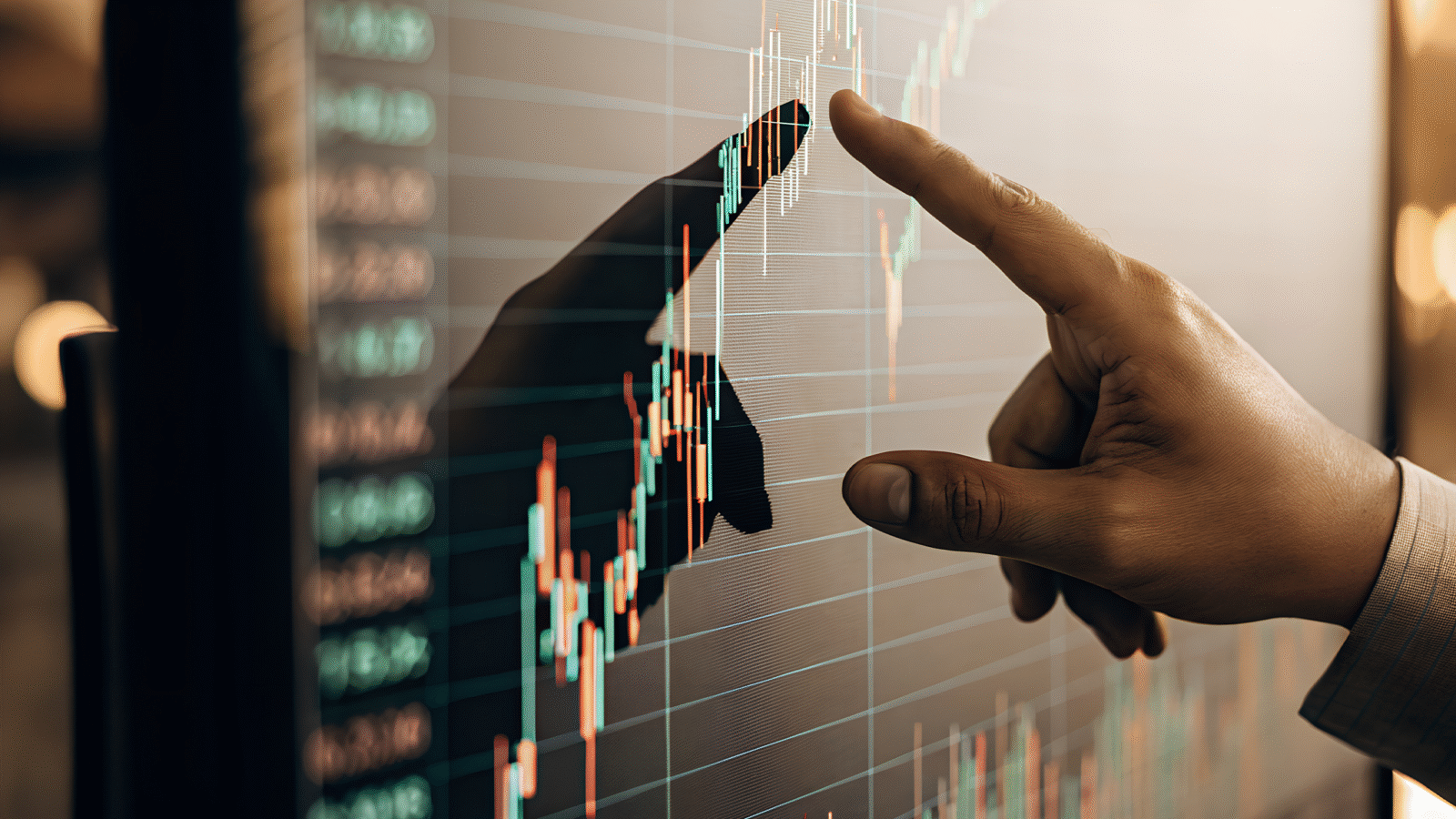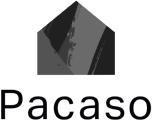Good morning.
Attendees of the annual Jackson Hole Economic Policy Symposium this week have a lot on their plates, including tamping down inflation, bolstering a softening labor market, withstanding mounting political pressure, and … dodging rabies.
That’s right. Staff at the storied Jackson Lake Lodge recently discovered a colony of bats hanging out in a block of cabins on the property. We’d say we’re concerned for the conference’s myriad central bankers, economists, academics and policymakers, though if we’re being honest, we’d say we’re mostly just jealous that the winged mammals found a way to slip past security protocols tighter than even monetary policy.
Meta Focuses on New Smart(er) Glasses

If you’re chatting with someone who keeps looking down and to the right … they might be secretly looking at photos of their dog. Meta’s “Hypernova” glasses, set to be released as soon as next month, will feature a display for accessing apps and pics in the lower right corner.
The glasses will cost $800, Bloomberg reported this week. That’s a significant drop from previous reports of up to $1,400, a profit-trade off that Meta hopes will spur sales of the new tech by winning it a spot on holiday wish lists.
As Meta’s market cap hovers near the $2 trillion mark, a successful launch of its Tony Stark-esque glasses could put the tech giant over the edge.
Expanding Field of Vision
The global market for smart glasses was worth nearly $2 billion last year and will more than quadruple by 2030, Grand View Research predicts. North America makes up the biggest chunk of the market, with more than a third of last year’s sales, and Meta dominates the space:
- Counterpoint Research found Meta commands nearly three-quarters of the smart glasses market, with sales of its Ray-Ban mixed-reality glasses jumping 200% in the first half of this year from the same period in 2024. The social media company revealed in February that it sold more than 2 million pairs of its first-generation smart glasses.
- CEO Mark Zuckerberg said he expects glasses to become a “primary computing device.” In a show of its continued support for the tech, Meta invested $3.5 billion in its glasses-making partner EssilorLuxottica last month.
Far Sighted: Tech giants have been pushing for smart glasses to make it into the mainstream for more than a decade (flops include Google Glass and Snapchat Spectacles), and Meta’s starting to see its vision come into focus. This year, AI has juiced enthusiasm for smart glasses as tech companies race to make the ultimate AI companion device. Meta’s glasses use AI to answer queries about what its wearer is looking at or live-translate conversations. OpenAI has also teased a future of AI companion devices, though it didn’t specify what kind, and Google’s developing AI glasses with Warby Parker.
How 433 Investors Unlocked 400X Return Potential

Institutional investors back startups to unlock outsized returns. Regular investors have to wait. But not anymore. Thanks to regulatory updates, some companies are doing things differently.
Take Revolut. In 2016, 433 regular people invested an average of $2,730. Today? They got a 400X buyout offer from the company, as Revolut’s valuation increased 89,900%.
No wonder 10K+ everyday people are taking the chance on Pacaso.
Founded by a former Zillow exec, Pacaso’s co-ownership tech reshapes the $1.3T vacation home market. They’ve earned $110M+ in gross profit to date, including 41% YoY growth in 2024 alone. They even reserved the Nasdaq ticker PCSO.
The same institutional investors behind Uber, Venmo, and eBay backed Pacaso. And you can join them. But not for long.
Homebuilders Offer Best Incentives Since COVID
Homebuilders are doing just about everything they can to make a sale. Buyers remain scarce.
In fact, builders are offering the most sales incentives in five years, according to the National Association of Home Builders’ (NAHB) monthly confidence index data released Monday, which also showed that builders’ confidence in the market is now at its lowest level since late 2022. Both builders and buyers, however, may take solace knowing that the Oracle of Omaha, in one of his final prophecies, foresees upside for the sector.
Buffett-Backed Real Estate
Just how desperate are homebuilders to move inventory? A full 37% have slashed prices this month, down ever so slightly from 38% in July — the highest figure since the NAHB started tracking the data in 2022. In both months, the average price reduction was 5%; that comes after the median sale price of existing homes hit an all-time high earlier this summer, according to the National Association of Realtors. Some 66% of builders are offering sales incentives in some form or another, up from 62% last month and the highest since the COVID-19 pandemic.
Worse, “builders are also grappling with supply-side headwinds, including ongoing frustrations with regulatory policies connected to developing land and building homes,” NAHB Chairman Buddy Hughes said in Monday’s report.
Still, Berkshire Hathaway revealed in regulatory filings last week that a handful of key homebuilder stocks were among Buffett’s final plays. He’s hardly alone in anticipating a rebound:
- During the first half of the year, Berkshire invested nearly $800 million in shares of homebuilder Lennar as well as roughly $300 million in homebuilder DR Horton; Lennar and DR Horton are two of just four homebuilders in the S&P 500. Berkshire also reported an approximately $857 million stake in Nucor, America’s largest steelmaker.
- Meanwhile, a MarketWatch analysis of 18 homebuilders’ stocks in the S&P Composite 1500 Index showed the group climbed 21% from the end of June through the end of last week, while the iShares US Home Construction ETF is up over 15% in the past month.
Deep Cuts: So why the optimism? Demand-side softness is due almost entirely to one thing: affordability (or lack thereof), and a timely September rate cut from the Federal Reserve could help reduce prices for builders and buyers. The average rate on a 30-year fixed-rate mortgage fell to 6.58% last week, according to Freddie Mac. That’s the lowest since October of last year and down from recent 7% highs. CME Group’s FedWatch tool shows traders are penciling in an 83% chance of a quarter-point rate cut at the central bank’s meeting in September, which could nudge mortgage rates down even further. Be careful, Jerome Powell: Disappointing the president is one thing, but the wrath of frustrated millennials may be even worse.
Novo Nordisk Soars After 50% Ozempic Discount, Liver Treatment Approval
Cash truly is king. On Monday, shares in Novo Nordisk jumped 4% after the drugmaker announced that US customers who pay out-of-pocket will be able to buy its blockbuster diabetes drug Ozempic for less than half the list price.
In a year of struggles against copycats, an emboldened chief rival and political pressure over high prices, executives are no doubt hoping the discount will prove a crowning achievement.
A Letter from Washington
Without insurance, Ozempic can set back US customers roughly $1,350 a month, or enough to rent a one-bedroom apartment in Kansas City (where the local barbecue might have you in need of a GLP-1 prescription). That hefty price tag has led to a bipartisan pushback in Washington, including from President Donald Trump, who sent a letter to Novo last month demanding executives lower prices for their company’s treatments. Trump also urged drugmakers to develop direct-to-consumer sales models for their medicines. Americans spent $98 billion out of pocket on prescriptions last year, a 25% cumulative increase over five years, according to IQVIA, while a majority worry that prescription costs are unaffordable, according to KFF polling.
Meanwhile, Novo has its own incentives to lower prices. For one, customers flocked to cheaper copycat drugs that exploded in popularity during a multi-year GLP-1 shortage, one that the FDA declared over earlier this year. And the company’s chief rival in the GLP-1 space, Mounjaro- and Zepbound-maker Eli Lilly, has been binge-eating market share. Last month, the pressure prompted Novo to slash its sales and profit forecasts, prompting a massive selloff on Wall Street (shares are down 37% this year). On Monday, the company signalled it will defend its turf:
- Novo said cash-paying Americans can now buy Ozempic for $499 per month through its official website, its patient assistance program, its newly launched direct-to-consumer online pharmacy, or through discount telehealth platform GoodRx. The move follows Novo’s decision to halve the price of weight-loss treatment Wegovy in March.
- Its price reductions follow similar cuts from Eli Lilly, which slashed the prices of both its weight loss and obesity GLP-1 drugs in March. David Ricks, Eli Lilly’s CEO, said at the time that about 10% of the 1 million people who bought Zepbound did so from the company’s website.
MASHing Success: Monday’s news came on the heels of a Friday victory for Novo, when Wegovy received FDA approval to treat metabolic dysfunction-associated steatohepatitis (MASH), a liver condition that affects roughly 5% of US adults, potentially opening up a market of millions of new customers. It was the first GLP-1 treatment to be approved for MASH, giving Novo a leg up against its biggest competitor. Rival Lilly, meanwhile, has run trials, inked deals and even made an acquisition earlier this year with an eye to rolling out MASH treatments.
Extra Upside
- What’s in a Name: MSNBC is rebranding to MS NOW (which will stand for My Source News Opinion World) as Comcast spins off its cable properties into a new company; CNBC will retain its name.
- Swift Resolution: The US is suing Key Investment Group, an event ticket reseller, for allegedly buying up thousands of Taylor Swift tickets and flipping them at marked-up costs.
- Your Morning Routine Is Missing Something Crucial. Start each day with The Hustle’s addictive 5-minute briefing that cuts through the noise to deliver only the business and tech stories that actually impact your world, loved by 1.5M+ readers who refuse to settle for boring — sign up now.**
** Partner
Just For Fun
Disclaimer
*This is a paid advertisement for Pacaso’s Regulation A offering. Please read the offering circular at invest.pacaso.com. Reserving the ticker symbol is not a guarantee that the company will go public. Listing on the Nasdaq is subject to approvals. Comparisons to other companies being for informational purposes and should not imply similar results.

